The inflation reports landed with a resulting rip to the consumer’s pockets as it rose to 8.3%. The hikes in grocery prices are unlike any American has experienced since the seventies, with goods clawing at double-digit prices.
Gas prices escalated to five dollars per gallon. Eggs, fish, meat, and poultry saw an increase of 14.2 percent within twelve months. Milk and milk products leaped over 11.8% over the same period.
It is speculated that the causes of these rises could be attributed to any of these three things:
With this in mind, it has become imperative for consumers to prepare for the worst before it’s too late to do anything.
Preppers are encouraged to take it in stride and appropriate a few measures that’d keep their money intact and basic needs consistently met. These are ten points to consider before it’s too late.
Evaluation of your earnings and cash flow is pertinent because inflation makes it practically hard to stay within usual budgets.
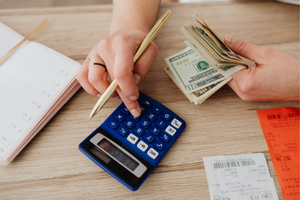
Whip out your little black book, record every expense you remember. You don’t necessarily have to calculate the total, just see the physical trails of your spending.
Not only will this aid your saving habit, it will curb your spending. It will help you prioritize.
At first, it may seem embarrassing to always ask for lower prices or available discounts.
However 70% of customers who do receive some form of deduction and their money is considerably saved. At the same price, you will get more value for your money.
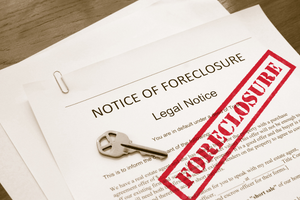 The monthly payments for loans, despite low interest rate can weigh on an already tight budget.
The monthly payments for loans, despite low interest rate can weigh on an already tight budget.
However, considering the 0.5 increase in interest rates by the bank, preppers can make predictable payments by combining high interest credit card bills into personal loans.
If there is a sudden increase, you would have already evaded it. No matter how tempting or lucrative it seems, don’t get a loan at this period.
At retirement, you probably had plans of purchasing expensive generators or the choicest fishing rods however at this peak of inflation, it is best postponed.
Buy only items that are necessary for survival, especially in the event of an SHTF. For big buys, it’s best to wait for the economy to stabilize.
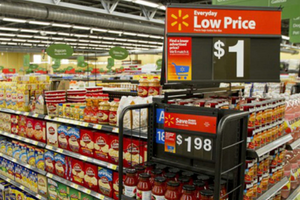 Most, if not all stores, run sales every month.
Most, if not all stores, run sales every month.
It might ease your pocket if you hunted down those ones offering products at discounted sales prices. The bargaining and consequent reduced rates aid preppers in obtaining quality products for lesser fees.
Also, you might want to dust out the coupons and take them along for the next grocery shopping.
You might be tempted to keep your equipment and tools at a tiptop condition so as not to be caught off guard. While this is great behavior, it is strongly recommended to put off those repairs that are not critical currently.
You might find that each unnecessary repair cost will be a bottomless money pit, further throwing you financially off track during this inflation. Unless it is absolutely important, postpone that huge repair until prices are stable and your pocket, safer.
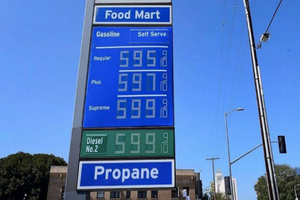 Due to the surge in gasoline prices, expenses are accrued even by simple errands. Before your budget gets eaten too deep, your driving should be limited.
Due to the surge in gasoline prices, expenses are accrued even by simple errands. Before your budget gets eaten too deep, your driving should be limited.
Taking public transportations, carpooling, short walks and running errands in batches may save more money than you can imagine.
Car insurance premiums can be lowered if you are qualified for it. This is dependent on your driving history and of course, credit score. Check with your company to know if you qualify and save money.
Ask your local pump station for available discounts. Some offer gas rewards credit cards (for cash back and points on gasoline) and/or a discount for text message sign up.
The major goal is to save your money and possibly reinvest. Using expensive brands will erode that goal while prices continue to double. But this doesn’t apply to your medications of course.
Find stores that are not as expensive or brands that basically have the same product but are less expensive.
Also, buying in bulk saves more that it spends. It is advisable to purchase necessary products in large quantity and save the few extra bucks, probably switch it to gas money.
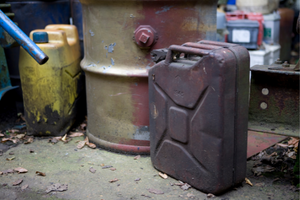 As gasoline surges in price, you might want to consider storage.
As gasoline surges in price, you might want to consider storage.
This requires careful handling as it is very volatile.
For a long term storage, use a metal container and remember to add an additive to slow the gas’s degradation period.
Do not store gasoline any where near a flammable material and it shouldn’t be under the sun. A shed or a barn is appropriate. A garage is good only if the car is moved to another area.
This doesn’t resemble a transitional inflation in the slightest. Judging by the double digit rise in products, it is important to stock up on items that are necessary for survival.
Stock up on everything you need, as the prices could drastically change next time you choose to visit a store. You won’t be saving money, you’d have taken a large hit instead.
Finally, before you get swarmed in the by the inflation, remember to apply some if not all of these measures. It might appear brutal but they are essential in these times, to help you stay above boards and even thrive.
Do not put off paying off a debt, save and always plan for the future. You will get through this in the end.
FULL STORY


